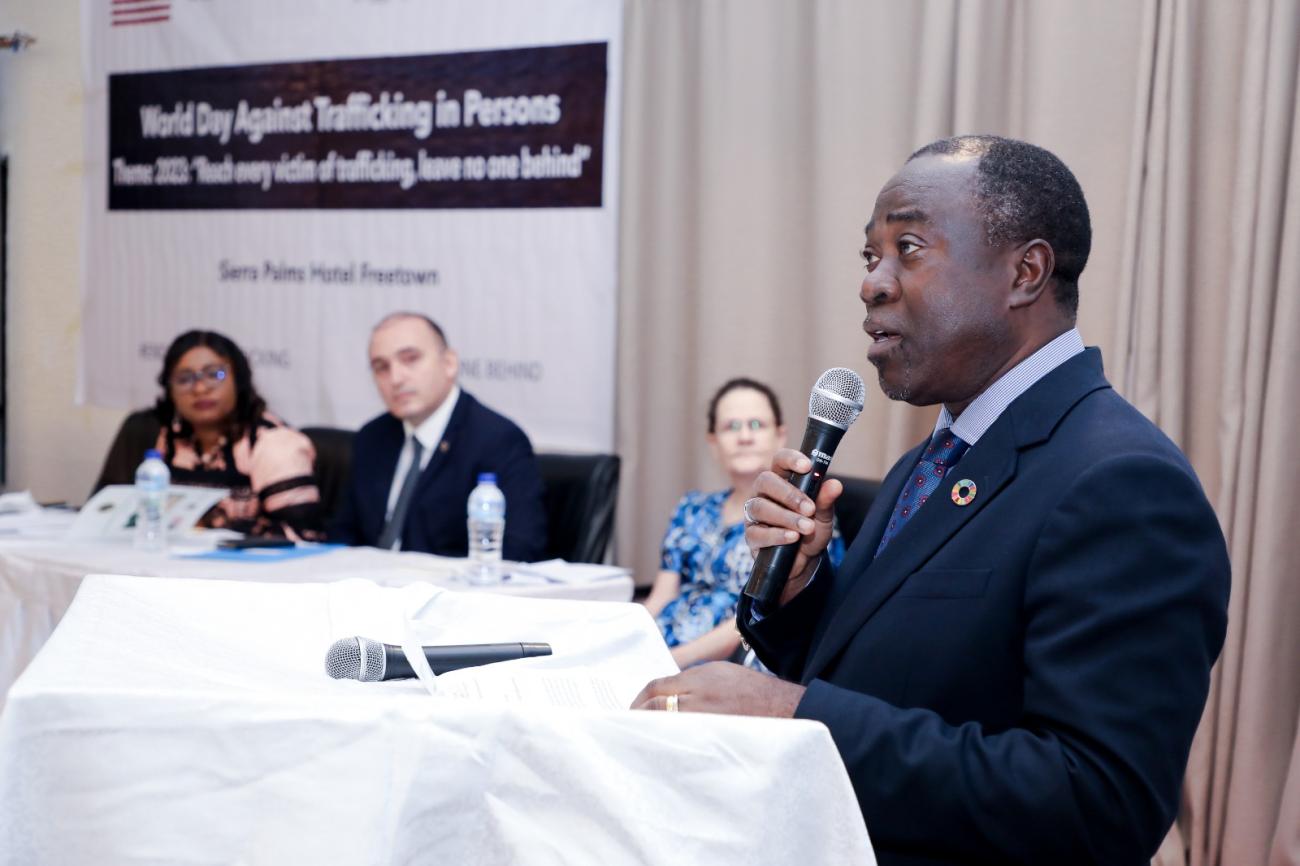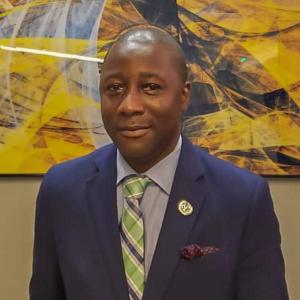United Nations Resident Coordinator (RC) Babatunde Ahonsi has revealed, quoting IOM and ILO global estimates, that 28 million people are trapped in various forms of trafficking and that almost every country in the world is affected by trafficking, "whether as a country of origin, transit or destination for victims."
He was speaking on Monday at a United Nations Country Team (UNCT) through the UN Network on Migration in Sierra Leone World Day against Trafficking in Persons event organised in collaboration with the Ministry of Social Welfare at the Sierra Palms Hotel in Freetown where he also said that each year, thousands of men, women and children fall into the hands of traffickers in their own countries and abroad.
According to Mr Ahonsi, "Human trafficking can happen to anyone irrespective of age, gender and country; it preys on vulnerability and thrives in times of conflict and instability."
He also disclosed that the most detected victims of trafficking are women and children, many of whom suffer brutal violence, forced labour, and horrific sexual exploitation and abuse.
Furthermore, Mr Ahonsi emphasised that Human trafficking impedes progress on several SDGs, particularly Goal 5 (Gender Equality), Goal 8 (Decent Work and Economic Growth) and Goal 16 (Peace Justice and Strong Institutions). "These SDGs aim to eradicate gender disparities and promote sustained, inclusive and sustainable economic growth with full and productive employment of young people," he stated.
The RC also used the occasion to reaffirm the UNCT's commitment to end human trafficking. He called on all partners to work together to end impunity and support the most affected.
In his welcome address, Head of Office, IOM Sierra Leone Christos Christodoulides and Chair of the UN Network on Migration indicated that while human trafficking is a crime, our responses are falling short, leaving many unprotected.
According to him, the targeted are often the most vulnerable in society, left behind by poverty, conflict, and climate-related disasters. In search of better lives, victims are trapped by traffickers.
He said that Trafficking in Persons (TIP) matters have attracted significant attention and action at the highest level of the Government, which has contributed to the increased awareness of TIP issues and effective prosecution of perpetrators.
Mr Christodoulides also revealed that victims of trafficking returning to Sierra Leone face a multiplicity of challenges upon their return. Their return often results in disappointment and is plagued with stigma.
In her keynote address, the incoming Minister of Social Welfare Melrose Kaminty said the event was of importance to the Government as it reinforces their commitment to combating human trafficking in all its forms in the context of the Anti-Human- Trafficking and Migrant Smuggling Act of 2022.
"This new legislation provides for a minimum 25-year custodian sentence for anyone found guilty of the offence of trafficking in persons. There is also provision for a minimum of 7 years custodian sentence for anyone found guilty of assisting migrants to cross our borders in breach of the law," she said.
Madam Kaminty emphasised that Government's priority is to end human trafficking and that a national strategy has been developed.
The Executive Director, Anti-Trafficking in Persons Agency, Mr Dehunge Shiaka and USAID Sierra Leone Country Rep, Ms Nancy Geodfrey, also made statements. A session was also held in which survivors narrated their stories of human trafficking.
Trafficking in Persons (TIP) is a crime and grave human rights violation of enormous scale, which is prevalent in situations of vulnerability.
Every year, July 30th marks the World Day against Trafficking in Persons (WDATIP). It was proclaimed by the UN General Assembly in 2013 as a day set aside to raise awareness of the plight of human trafficking victims and to promote and protect their rights.
This year's theme is "Reach every victim of trafficking, leave no one behind.





